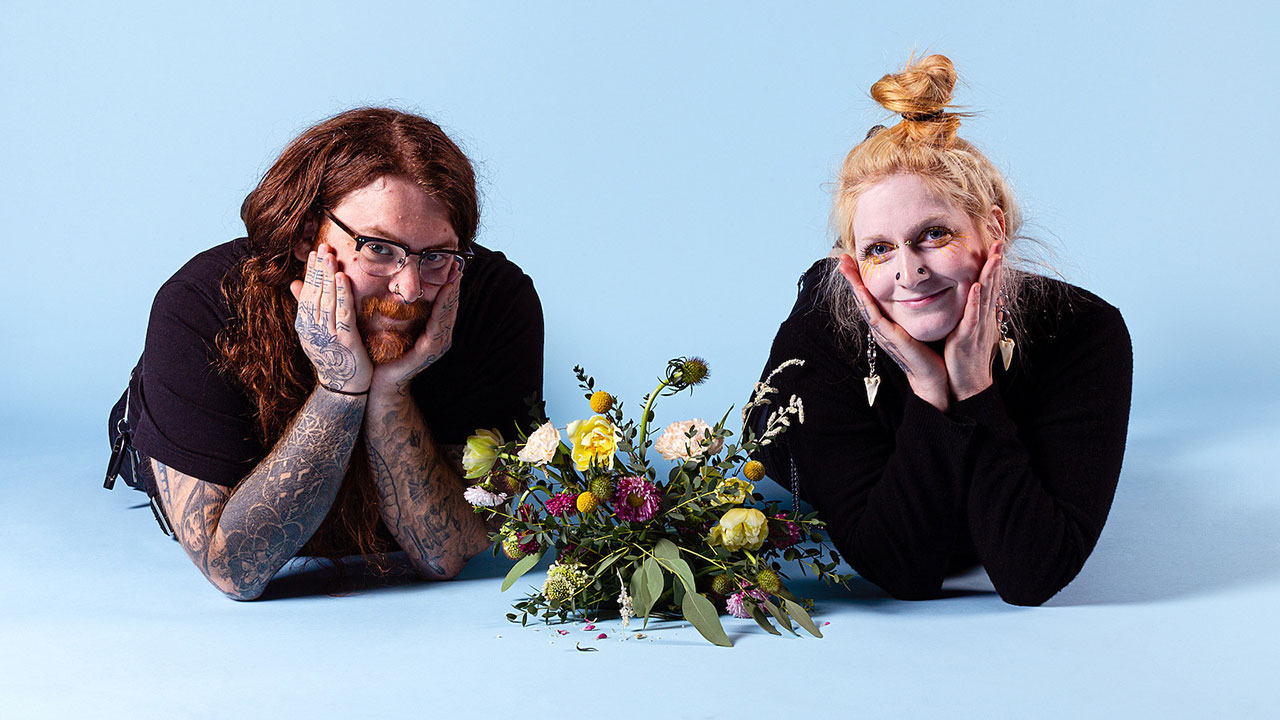The most extreme end of the metal spectrum is a vast and uncharted place, but it’s united by one thing: the urge to push back the boundaries of heaviness, twist music into new shapes, and generally provoke an adverse reaction from the mainstream.
The extreme scene has always been a home for the marginalised. But where it was once the preserve of death metal growlers singing about serial killers and black metal malcontents burning churches in the name of Satan, today some of the most original and imaginative extreme music is coming from queer artists.
As Louisiana sludge visionaries Thou (who feature a non-binary member) and experimental black metal outfit Liturgy prove, by gravitating towards the edges of established genres, queer and transgender artists can begin to carve out new spaces for themselves. “The feminisation and queering of metal… [is] basically a culturally illegal zone,” says Liturgy’s transgender frontwoman, Hunter Hunt-Hendrix. “I will always seek to occupy this.”
Some queer artists create extreme music in order to help process the difficulties which come with the LGBT experience. Melbourne-based Xandra M formed the noise project Uboa to tackle the realities of growing up as a transgender woman in a cisnormative world. Uboa’s debut album The Origin Of My Depression is an unflinching and frequently heartbreaking look at the destructive nature of living with gender dysphoria. The album’s mix of harsh noise and ambience presents a type of art which inspires both rage and pathos, and offers a true insight into the transgender lives which are so often ignored by the mainstream.
Sometimes this kind of catharsis takes a more traditional form. Non-binary Canadian doom duo Vile Creature fuse heavy riffs with lyrical themes of resistance, fatigue and apathy. Their spectacular 2020 album, Glory, Glory! Apathy Took Helm, is a mix of despair and euphoria. Its celebration of all that is both heavy and majestic is best illustrated by the epic, two-part title track, which acts as a call to arms for everyone, LGBTQ+ or otherwise. Vile Creature encourage queer people to rise above the apathy of modern life and to continue living, despite it all.
Part of the attraction of extreme music is that breaking the rules is easier when there are no clear rules to break. Montreal rapper/producer/“cryptid”
Backxwash does exactly that within the first few seconds of her acclaimed 2020 album, God Has Nothing To Do With This Leave Him Out Of It, sampling Ozzy Osbourne’s “Please. God, help me!” wail from Black Sabbath‘s Black Sabbath. The idea of a trans artist repurposing the song which birthed heavy metal for her unique blend of trap, industrial noise and metal may be sacrilege to some, but there’s a point to it: her lyrics throughout the album illustrate her own struggle to merely exist in the world. 'I’m paranoid that everybody’s out to try and get me/I’m looking over shoulders as I’m passing through the deli,' she spits at one point, a harsh reminder of the realities that queer people, specifically queer Black people, face.
But just as ‘extremity’ doesn’t always have to mean ‘walls of distorted guitars’, so grappling with gender identity can be a spiritual experience and a tool for healing. On new album Versatile, Oregon vocalist-composer A Stick And A Stone – aka Elliott Miskovicz – mourns and celebrates transgender love, life and death, creating brooding, devastating atmospheres through minimalistic textures and compelling, ethereal vocals alone. Interestingly, Elliott, a transgender man, decided to take the lowest dose of testosterone possible, in order not to impact his voice. “It doesn’t feel like my own voice, but rather a voice I’m possessed with.” he says, “I can still express myself through it the same way I can express myself through any other instrument I possess. And similar to my instruments, it doesn’t feel like a part of my own body.”
Artists such as these encounter obstacles and reactions other extreme musicians don't face. They are often distilled down to merely “trans metal artists”; worse they face homophobic and transphobic hatred from the more close-minded sections of the extreme metal community. But the disconnect between the imagination and confidence of these artists and their music and the close-mindedness of some of the people who refuse to listen to them is just of the things that spurs them on to create such inventive music.
But ultimately, the expanse of transgender artists in extreme metal is growing larger by the day, allowing us to experience different ways of being, different ways to experiment with and create art, expressing our own identity and gender along the way. While the mainstream metal world slowly catches up, it’s important to remember that the darkest shadows have always belonged to us.
